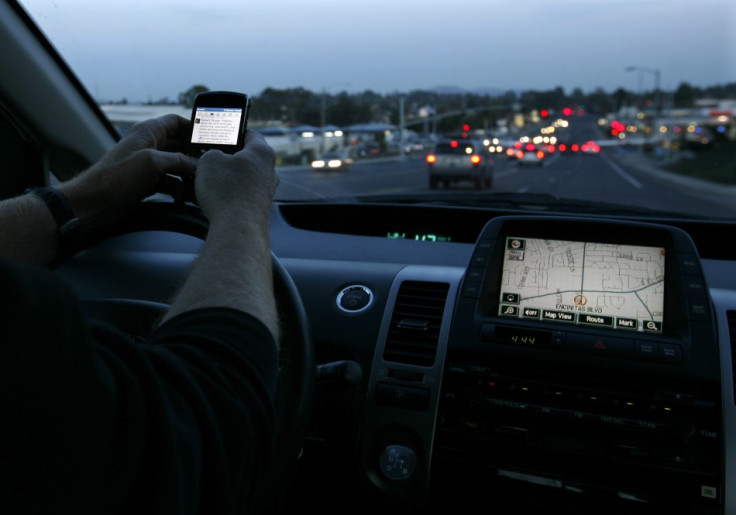Smartphone detection cams will help catch distracted drivers in Australia
The technology will be rolled out in the Australian state of New South Wales.
Australia is using innovative ways to catch people who drive while using smartphones. According to a new report, the government of New South Wales is using smartphone detection cameras to check whether people are using smartphones on the road.
Associated Press reported on Monday that New South Wales Roads Minister Andrew Constance had rolled out the program and called it "the first of its kind in the world."
"There is no doubt drink-driving as far as I'm concerned is on a par with mobile phone use, and that's why we want everyone to be aware that you're going to get busted doing this anytime, anywhere," he told Australian Broadcasting Corp.
How the system works is that it uses two cameras simultaneously – one focusing on the number plate and other one focuses on the driver, specifically what he/she is doing is with his/her hands. Once the content is recorded, artificial intelligence will be used to find those who are using their phones while driving.
AI will isolate drivers who are deemed to be touching their phones. Content will then be referred for human verification. If found guilty, the person would be mailed a fine of 344 Australian dollars (£187.5). While some cameras will be stationary, others will be placed on moving trailers around the state.
The fact that this is taking place in New South Wales is also important, since it is the state where Sydney is located and the most populous region of the country.
The Australian government measure places using smartphones while driving at the same level as drunk driving. It is noteworthy since it is one of the main reasons for accidents world wide. In the testing phase, the government identified 100,000 violators in a six-month period.
The system is not cheap – it costs around $88 million. That is a high price to pay for two cameras, right?
It is expensive since it will make exceptions for phones placed in hands-free cradles, connected through Bluetooth and situations such as drive-throughs.
According to Regional Minister Paul Toole, "Independent modeling has shown that these cameras could prevent around 100 fatal and serious injury crashes over five years."
While some organisations believe that motorists should be warned about being monitored, Minister Constance believes that surprise will be a tool for behaviour moderation and instilling good traffic habits in citizens.
"We have to unfortunately use the element of surprise to get people to think 'well, I could get caught at any time. I want behaviour to change and I want it changed immediately. It's not about revenue—it's about saving lives," he stated.

© Copyright IBTimes 2025. All rights reserved.





















